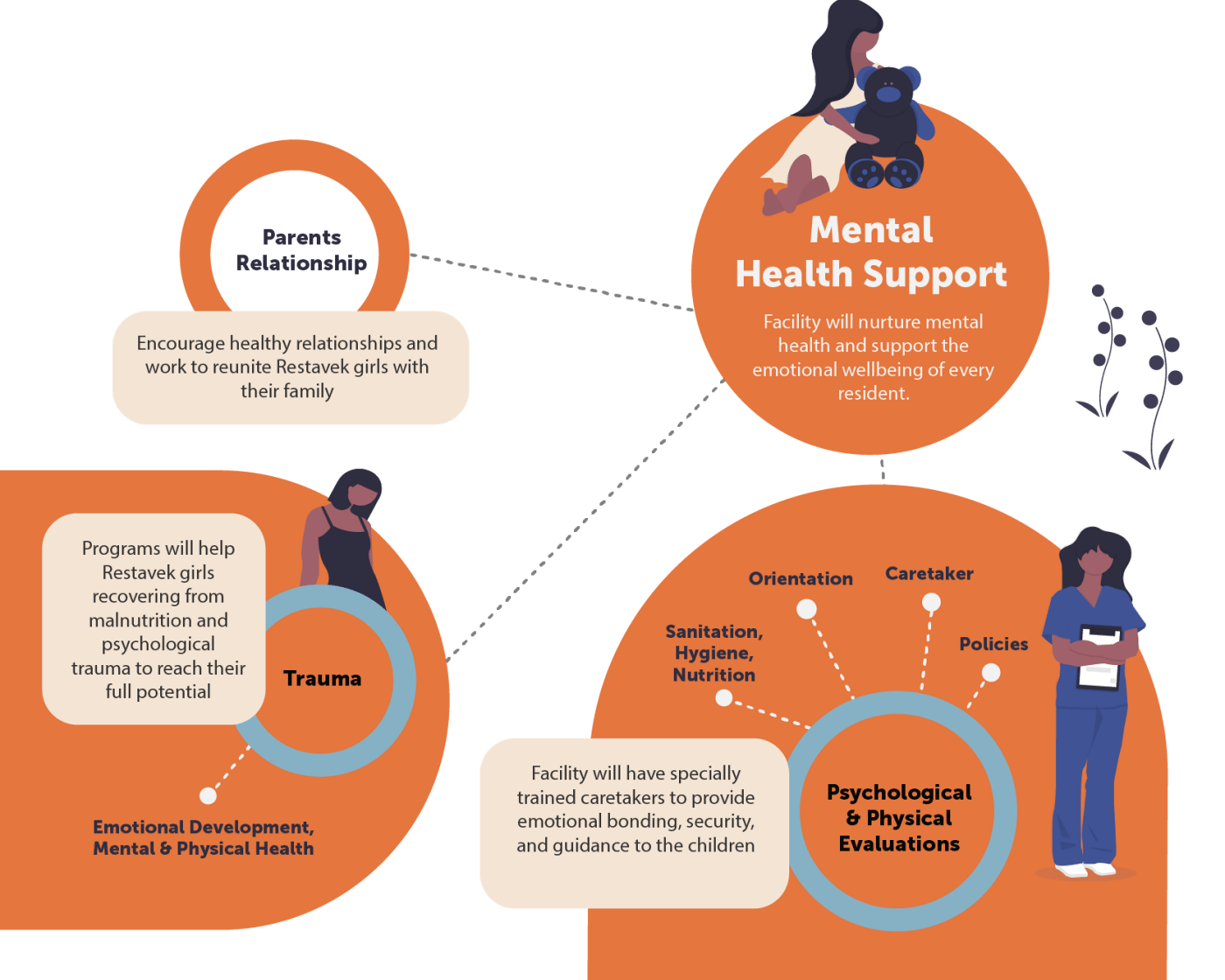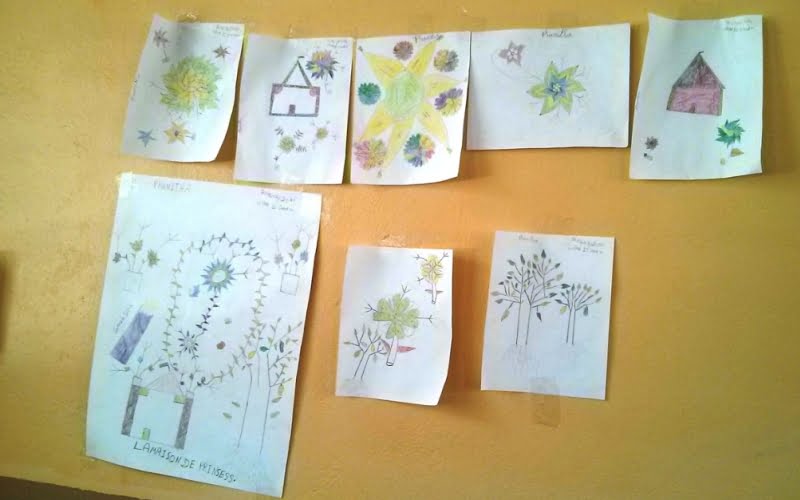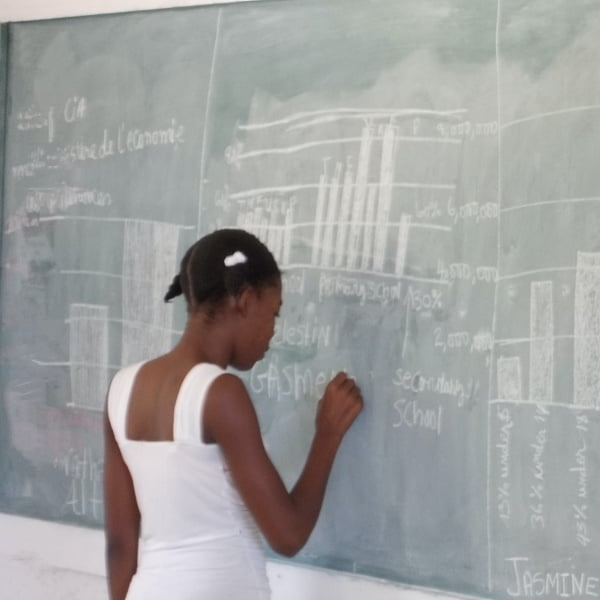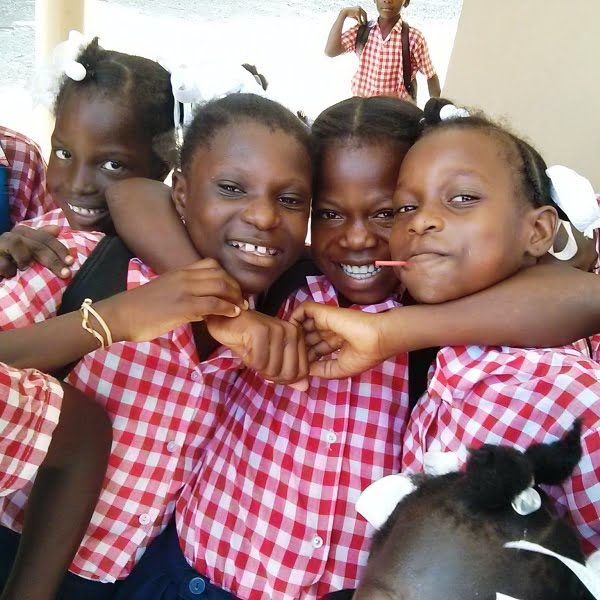Mental Health
Restaveks endure years of abuse. They have chronic trauma from experiencing humiliation, neglect, and abandonment.
Helping Haiti’s Most Vulnerable Girls
When girls from impoverished homes are sent to work for other families outside of their parents' homes, many become “Restaveks.” “Restavek” describes children exploited in domestic servitude. They are often abused and carry deep trauma.
Restavek children are stripped of their childhood and are forced to do adult work in high-stress and abusive environments almost all day without pay. Some symptoms of mental health problems they experience include crying, sadness, rumination, stealing, fighting, depression, violence, bullying, feelings of neglect, anxiety, and feelings of shame.
Emotional Security
With the guidance of mental health professionals, we at Haiti Now have developed an in-depth process to start healing from trauma.


A Pathway to Healing
Haiti Now has the responsibility of safeguarding our girls from all forms of abuse. We collaborate with mental health professionals and provide mental health support for our residents. This rehabilitation staff joins us in emphasizing compassion, empowerment, transparency, and accountability.

To protect and improve the mental health of former Restavek children, we at Haiti Now will:
- Establish a Code of Conduct and train staff to practice 'active listening'.
- Foster social-emotional learning through teamwork, collaboration, self-motivation, problem-solving, conflict-resolution, and democratic participation.
- Facilitate healthy relationships between our girls and their families and communities.
- Keep records and maintain assessments for each child.
- Provide immediate healthcare and plan for routine preventive healthcare.
- Provide healthy diet options.
- Maintain an interactive and positive learning center and housing.
- Promote good personal hygiene.


